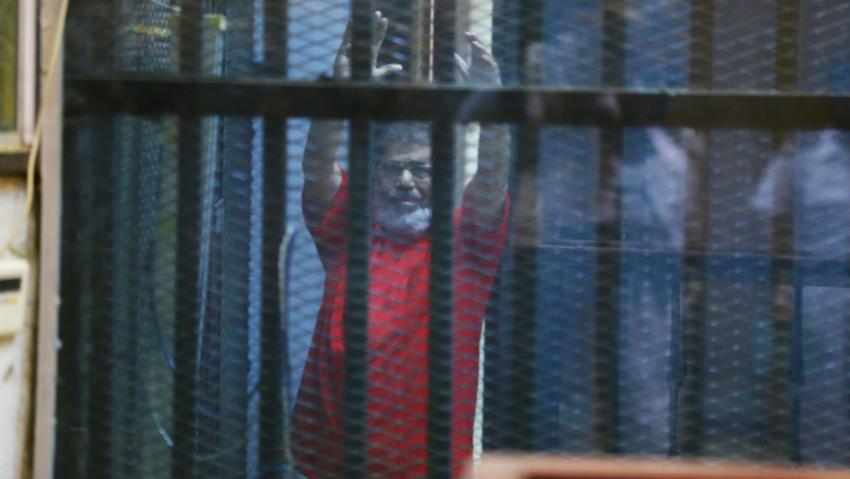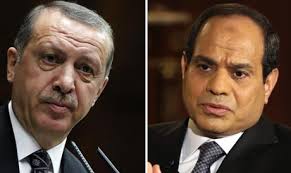
Egypt’s top appeals court overturned a ruling placing 1,538 people on a government terror list, including President Mohamed Morsi.
The Court of Cassation sent the case back to a lower court for reconsideration. The ruling was based on an appeal by some of the defendants, many of whom are jailed members of the banned Muslim Brotherhood organization. The list also included Mohammed Aboutrika, a prominent ex-soccer player.

Morsi, Egypt’s first democratically elected civilian president, was ousted following a military coup in 2013 after just a year in office. Since then, Egyptian authorities have killed hundreds of Brotherhood members and jailed thousands more in a campaign that has drawn scathing criticism by international human rights groups.
The crackdown has been led by former army commander Abdel-Fattah Al-Sisi, the man who led Morsi’s removal and succeeded him as president in 2014. He was elected for a new term in this year’s election, which was marred by a widespread opposition boycott and a campaign of arrests and threats against Sisi’s rival candidates and other opposition figures.
The criminal court’s decision on designating about 1,500 citizens “terrorists” for their alleged assistance to the Muslim Brotherhood was once described as one of the authorities’ indiscriminate use of broad counterterrorism laws, said the Human Rights Watch.
Using these laws to impose penalties on people without giving them a chance to defend themselves seriously violates their rights to due process.
The terrorist designations were based on Law 8 of 2015 for Organizing Lists of Terrorist Entities and Terrorists, issued by a decree by Abdel Fattah al-Sisi in February 2015, in the absence of a parliament.
The law authorizes the prosecutor general to request designated Cairo criminal courts to name individuals or groups to the list for three-year renewable periods. The court has seven days to consider the request before deciding.
The law violates several legal protections laid out in the Egyptian Constitution, previous decisions of Egypt’s Supreme Constitutional Court, and international human rights law.
The consequences for people designated as “terrorists” under this law are similar to those for people convicted at trial, but the law does not require finding them guilty of a crime and makes no provision for them to contest the evidence prosecutors present in their request, violating the individuals’ right to fair trial.



